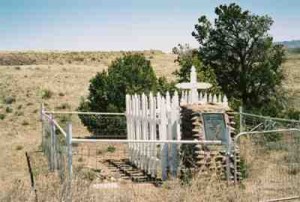Letter from Slim Wolfe
Agriculture – June 2007 – Colorado Central Magazine
Editors,
John Mattingly’s continuing series on small farm economics has been most welcome and given us much food for thought. Several subsidies and benefits he describes might seem like a good thing — and yet they are probably small potatoes indeed compared to the benefits our system doles out to the big players in our economy, including oil, agribiz, and defense industries. Small farmers, for example, are hardly the only ones to benefit from state-funded education, price supports, or other programs put forward by well-funded lobbies.
Few of us have the time or patience to go over every line of our state and federal budgets but it’s a reasonable guess that a lot of the benefits go to the people who need them least, while school children, mortgage-and-loan-holders, and others barely able to keep a roof over their heads don’t have the clout to get their fair share of the bounty. Ultimately the inability of the small farm to stand up securely in today’s economy might be seen as one major argument against our version of the so-called free market. But the farmer in more controlled economies has also been the victim of corruption, inefficiency, and injustice.
No one seems able to present us with a satisfactory system of food production based on a broad and thorough analysis of the whole picture. Rather we flip and flop around like a sailboat negotiating the winds and currents of the moment. Intelligent men like Mattingly may succeed somewhat in calculated strategies to beat the odds, but the odds are plainly stacked in favor of that one percent who control ninety percent of our wealth — and none of them got there on the seat of a tractor.
Moreover, while the public enjoys cheap food, it’s become habituated to processed and de-nutrified convenience-stuff which is produced by a wasteful and superfluous industry our planet can ill-afford. Figure the high cost of whole apples compared to the relatively low cost of applesauce — and that’s just one example. Surely the consumer and the farmer would be better off dealing direct in bulk flour, beans and barley than giving a huge cut to the middleman and winding up with Oreo cookies and canned soups.
Drive around agricultural areas such as the San Luis Valley or just read the ads in the paper, and you’ll notice a lot of for sale signs. Consider the amount of time and effort lost as small farmers shuffle from one chunk of mortgaged property to the next. In one sense it might be called freedom, but in another sense it’s pure waste and rootlessness, and has been so since feudal times — whenever the land was seen as a pawn in the chess game of more grandiose schemes.
We read in Mattingly’s writings some sense of loyalty to the land and the life cycle, but loyalties on a global scale are more directed towards wealth, power and the new cyber-religion. It’s reasonable to wonder who you’ll have to know on this world, fifty or a hundred years down the road, before you can even get the basic ingredients for a loaf of bread or a pot of chili.
Slim Wolfe
Villa Grove

